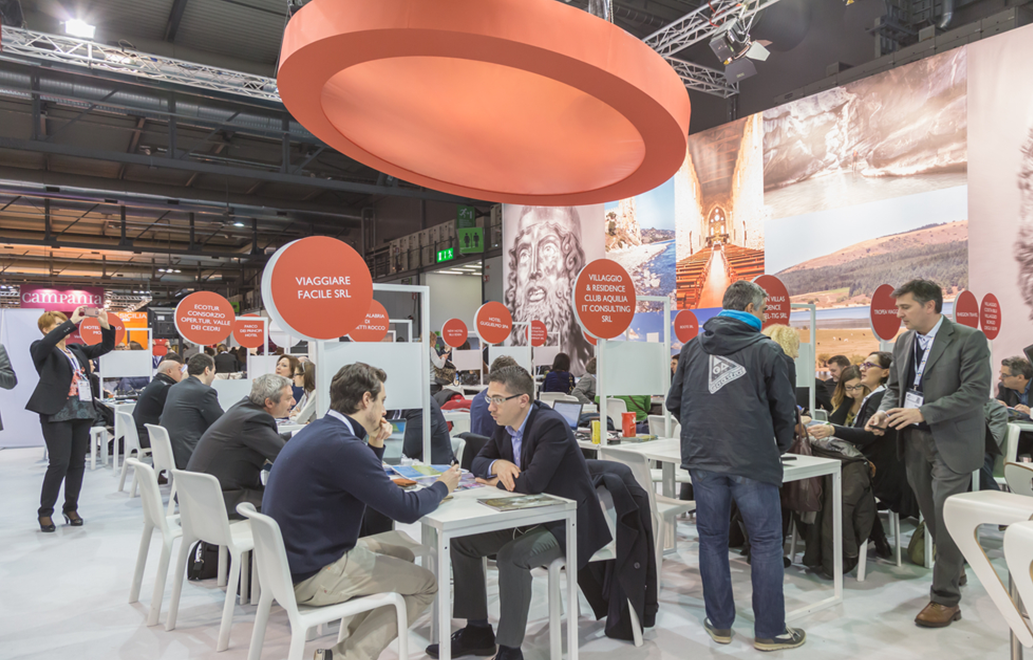Just How Event Production Functions: A Comprehensive Check Out the Process
Event production is a complex and structured procedure that calls for cautious planning and implementation. It starts with establishing clear objectives and understanding the target market. Each action, from budgeting to venue selection, plays a crucial role in making certain success. As the procedure unfolds, various components need to align seamlessly. The nuances of this intricate procedure frequently go undetected. What are the crucial stages that add to an unforgettable event?

The First Preparation Phase
When beginning on event production, cautious planning is necessary to ensure a successful outcome. The first drawing board acts as the foundation for all subsequent initiatives. Throughout this phase, event producers have to specify the event's function and objectives plainly. Recognizing the target market helps customize the experience and messaging, ensuring significance and engagement.Producers should additionally take into consideration the event layout, whether it be in-person, online, or hybrid, as this will certainly influence various logistical elements. Picking an appropriate day and place is important, as it affects ease of access and availability.Furthermore, assembling a dependable group is essential for dividing responsibilities and simplifying communication. Establishing a timeline with turning points guarantees all jobs are completed on time. This stage entails complete research study, consisting of determining possible obstacles and designing approaches to reduce threats. Ultimately, a well-structured first planning phase sets the tone for a successful event production trip.

Budgeting and Source Allocation
In event production, efficient budgeting and source appropriation are crucial for success - event production charlotte. Developing economic criteria sets the foundation for all subsequent decisions, while resource circulation approaches guarantee that every component of the event is sufficiently sustained. With each other, these components help maintain control over expenditures and enhance the use of offered sources
Developing Financial Parameters
Developing economic criteria is essential to the success of any kind of event production, as it sets the structure for effective budgeting and source allocation. This procedure starts with specifying the total spending plan, which incorporates all elements of the event, including location expenses, event catering, and advertising. By determining offered funds, event planners can prioritize expenses and allot sources appropriately. Furthermore, it is important to carry out comprehensive marketing research to anticipate potential prices and recognize funding sources, such as sponsorships or ticket sales. Developing clear monetary parameters also help in danger management, permitting coordinators to reserve contingency funds for unexpected expenditures. Eventually, a well-defined spending plan works as a roadmap, guiding the event production group towards achieving their objectives while maintaining economic control.
Resource Circulation Methods
Effective source distribution strategies are crucial for making best use of the effect of an occasion while adhering to spending plan restrictions. Effective event production needs a thorough technique to budgeting and source allotment. Organizers should focus on important components such as venue, food catering, and modern technology, making sure that funds are alloted to areas that improve attendee experience. An in-depth spending plan should lay out expected costs and recognize locations for potential expense financial savings, such as negotiating with vendors or checking out sponsorship possibilities. Additionally, tracking expenditures throughout the planning process assists protect against overspending. By using strategic resource distribution, event producers can provide a remarkable experience while keeping monetary responsibility, ultimately adding to the general success of the event.
Location Choice and Logistics
Selecting the ideal location is vital to the success of any kind of event, as it establishes the phase for the total experience. Place option includes examining different aspects, including capability, ease of access, and location. Planners must consider the target market and the nature of the event, making certain the location lines up with the event's goals.Logistics play a significant role in this procedure, including plans for seating, audiovisual tools, and providing services. A well-chosen place must help with smooth flow for participants and personnel, enhancing engagement.Additionally, reviewing possible locations for amenities like car parking, toilets, and fire escape is very important for safety and security and comfort. The timeline for securing the place is also critical, as preferred places might reserve quickly - event production charlotte. Extensive preparation and timely implementation can ultimately contribute to a smooth event experience, making venue choice and logistics fundamental elements of effective event production.
Creative Idea Growth
While the venue establishes the physical phase, creative idea growth shapes the event's identity and story. This procedure begins with determining the event's objective and target market, enabling event manufacturers to create a compelling theme that resonates with participants. Brainstorming sessions typically consist of varied perspectives, fostering innovative ideas that line up with the event's goals.Once a motif is developed, aesthetic elements such as color schemes, signs, and decoration are developed to boost the overall atmosphere. Storytelling methods may likewise be integrated to produce an appealing trip for individuals, ensuring an unforgettable experience. In addition, factors to consider pertaining to home entertainment, activities, and interactive components are aligned with the chosen concept, her latest blog reinforcing the motif throughout the event.Ultimately, reliable imaginative principle advancement assurances that every element of the event works cohesively, leaving a long lasting impression on attendees and fulfilling the event's objectives. This fundamental job prepares for subsequent planning and implementation phases.
Working together With Vendors and Suppliers
Effective event production depends upon efficient collaboration with suppliers and distributors. Choosing reputable partners, negotiating agreements successfully, and guaranteeing timely distributions are straight from the source vital steps in this procedure. Each of these aspects contributes substantially to the general success and smooth execution of an occasion.
Selecting Reliable Allies
Exactly how can event organizers ensure a seamless production experience? Choosing dependable companions is vital in achieving this objective. Event planners need to conduct thorough research study to recognize suppliers and suppliers with a tried and tested record of quality. This includes inspecting references, examining profiles, and assessing consumer feedback. Coordinators need to prioritize companions who demonstrate professionalism and reliability, prompt communication, and a desire to collaborate. Structure strong connections cultivates count on and makes it possible for quick analytic throughout the event. Additionally, it is beneficial to select regional suppliers that understand the venue and regional logistics. Eventually, an effective event depends upon the synergy between coordinators and their companions, making sure that every element of production runs smoothly and effectively.
Bargaining Agreements Effectively
Effective negotiation of contracts is an important action in the collaboration in between event planners and their vendors and providers. This process involves clear communication of expectations, deliverables, and timelines. Planners should conduct comprehensive research study on market rates and industry standards to develop a standard for arrangements. It is necessary to develop a joint environment, motivating open dialogue about terms, rates, and possible backups. Coordinators should also focus on comprehending the vendor's capabilities and constraints to straighten their requirements efficiently. Flexibility can bring about equally useful agreements, cultivating long-lasting connections. Crafting distinct agreements that include details efficiency metrics can help assure responsibility, ultimately bring about successful event implementation and contentment for all celebrations involved.
Making Sure Timely Distributions
Timely distributions are vital for the smooth implementation of any type of event, requiring thorough collaboration in between planners and their suppliers and suppliers. Efficient interaction is important, as it aids develop clear assumptions concerning distribution schedules, amounts, and particular demands. Planners typically develop comprehensive timelines to detail crucial turning points, making certain all parties stay straightened throughout the process. Routine check-ins with suppliers can help determine prospective hold-ups early, permitting positive options. In addition, building strong connections with trusted suppliers fosters depend on and liability, which can cause better service and prioritization. By prioritizing these collective initiatives, organizers can minimize disruptions, consequently boosting the total performance of event production and ensuring that all necessary materials and services arrive as intended.
Marketing and Promo Strategies
While arranging an occasion, the success of advertising and promo strategies can greatly affect participation and engagement. Reliable methods typically include a combination of electronic advertising, conventional advertising, and grassroots outreach. Using social media systems enables real-time communication and targeted marketing, reaching certain demographics efficiently. Email advertising and marketing campaigns can better engage possible attendees with tailored material and reminders.Collaborations with influencers or sector leaders can also improve reliability and broaden reach. Creating appealing web content, such as video clips or blogs, assists to create buzz and suffer rate of interest leading up to the event. Additionally, leveraging early-bird discount rates and unique perks can incentivize ticket purchases.Promoting with typical channels, such as posters or local media, stays pertinent, especially in community-focused events. A complete approach that integrates several methods warranties optimum visibility and interaction, eventually adding to the event's success and the production of a remarkable experience my review here for attendees.
On-Site Execution and Management
On-site execution and administration are necessary parts that establish the overall success of an event. Effective coordination during the event guarantees that all elements align with the planned agenda. Event managers oversee logistics, including vendor coordination, tools arrangement, and visitor solutions. Keeping track of timelines and dealing with any unexpected issues are basic for keeping a smooth experience.The personnel plays a considerable role, as trained employees are accountable for numerous tasks such as registration, details circulation, and technical support. Interaction among employee is vital; it promotes a collaborative setting and makes it possible for fast resolution of challenges.Additionally, security protocols must be followed, securing the wellness of all attendees. Post-event analyses are likewise part of on-site monitoring, supplying insights for future improvements. By concentrating on these elements, event manufacturers can develop unforgettable experiences that meet or go beyond guest assumptions while accomplishing the event's objectives.
Regularly Asked Questions
Just how Do I Select the Right Event Motif?
Selecting the right event motif involves taking into consideration the target audience, event objective, and location. Researching present fads and gathering input from stakeholders can additionally influence imaginative concepts that reverberate and create a remarkable experience.

What Are Typical Errors in Event Production?
Common mistakes in event production often consist of poor preparation, inadequate interaction among staff member, spending plan mismanagement, ignoring to think about the audience's demands, and stopping working to conduct a comprehensive post-event evaluation for future renovations.
Exactly How Can I Measure Event Success?
To gauge event success, one can examine guest satisfaction, involvement levels, budget adherence, and post-event responses. Secret performance signs, such as ticket sales and social media communications, likewise provide beneficial insights right into overall performance.
What Should I Do if It Rains on the Event Day?
In case of rain on the day, the coordinator must implement backup plans, such as protecting tents or relocating tasks inside your home. Interaction with guests concerning modifications is necessary to ensure a smooth experience regardless of weather condition obstacles.
Exactly How Can I Make Certain Attendee Involvement During the Event?

Comments on “Beginner’s guide to event production charlotte: What you need to know”